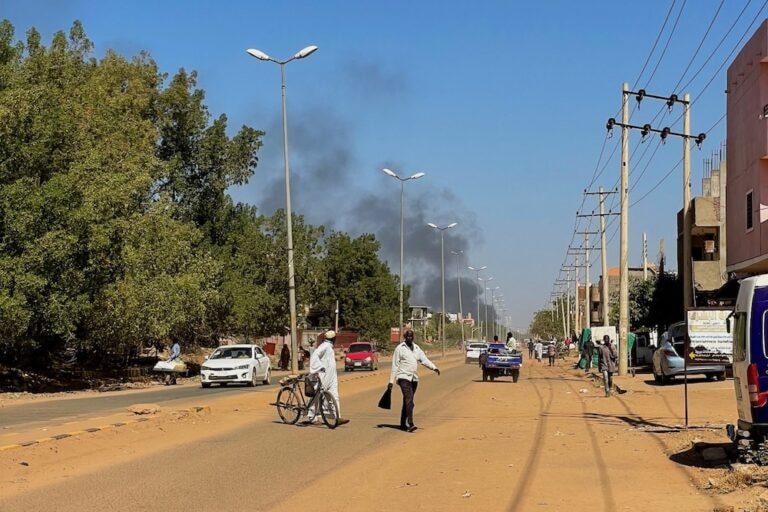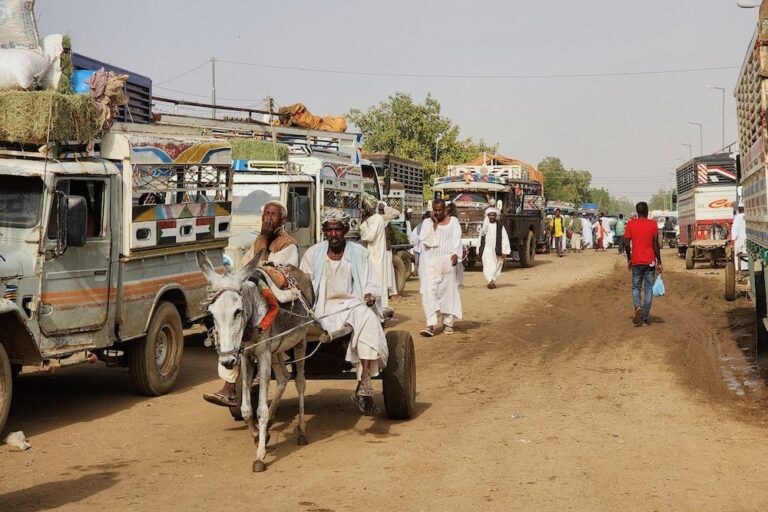(RSF/IFEX) – Reporters Without Borders has called for the release of US journalist Paul Salopek, a correspondent for the privately-owned “Chicago Tribune” daily newspaper, as well as his driver, Suleiman Abakar Moussa, and his interpreter, Abdulraman Anu, who are both Chadians. Held since 6 August 2006 in Al Fashir, the capital of the western state […]
(RSF/IFEX) – Reporters Without Borders has called for the release of US journalist Paul Salopek, a correspondent for the privately-owned “Chicago Tribune” daily newspaper, as well as his driver, Suleiman Abakar Moussa, and his interpreter, Abdulraman Anu, who are both Chadians. Held since 6 August 2006 in Al Fashir, the capital of the western state of North Darfur, they have just been charged with spying and entering Sudan illegally.
“The Sudanese government is becoming increasingly embarrassed by what foreign journalists are reporting in Darfur, so arresting them as spies is a way to dissuade them from coming to cover the unacceptable human tragedy unfolding there,” the press freedom organisation said. “This is ridiculous and disgraceful. Salopek and his assistants are media workers who were acting in strict accordance with the rules of their profession. They should be freed at once.”
Salopek was working on a report about the Sahel region for the privately-owned “National Geographic” magazine when he was arrested with his driver and interpreter on 6 August. He was carrying two US passports, which is not unusual for journalists who cover war zones. He also had satellite photos that anyone can download from the Internet.
When he appeared in court in Al Fashir on 26 August, he was charged with spying and “disseminating illegal information” – crimes punishable by long prison terms under the Sudanese criminal code. He was also accused of entering Sudan without a visa. At the request of his lawyer, the presiding judge adjourned his trial until 10 September.
An Al Fashir court sentenced Slovenian writer, photographer and human rights activist Tomo Kriznar on 14 August to two years in prison and a fine of 500,000 dinars (approx. 1,820 euros) for spying, publishing false information and entering Sudan without a visa. His lawyer has appealed. Kriznar had recently been acting as a special adviser to his country’s president (see IFEX alert of 17 August 2006).
Sudanese President Omar Al Bashir undertook to promote democratisation, the rule of law and freedoms on 11 July 2005, when he announced the repeal of emergency laws in the presence of UN Secretary-General Kofi Annan, several African presidents, and many senior European and US officials.
Thereafter, the authorities eased the pressure on the Sudanese media. No case of government censorship was registered and it was rare for journalists to be arrested. But it became difficult for foreign journalists to get a visa for Sudan and more and more of them began entering the country across the land border with Chad.
The international pressure over Darfur has led to a return to a tougher line towards the domestic press. Naser Eldien Ahmed Altayeb of the privately-owned, Arabic-language daily “Al-Ayam”, was arrested at 2 a.m. (local time) on 16 August and was badly beaten by about 20 police officers using batons. He had just written about an incident in Dar-al-Salaam (30 km south Khartoum) in which refugees from Darfur and southern Sudan were evicted from the land they had been occupying for 20 years after it was sold to an Egyptian real estate developer. He is being treated in the Khartoum university hospital.
Four journalists working for privately-owned dailies – Mougahed Abdalla of “Ray Alshab”, Abdoulgasiem Farahna of “Alowan”, Moutaz Mahjoob of “Al-Adwaa”, and Mouheb Maher of “Al-Sudani” – were arrested on 15 August and held for nearly five hours by police in the northern town of Marawi when they tried to visit the victims of flooding that occurred on 10 August. The police said they had received orders not to let journalists into the flood-hit area.


